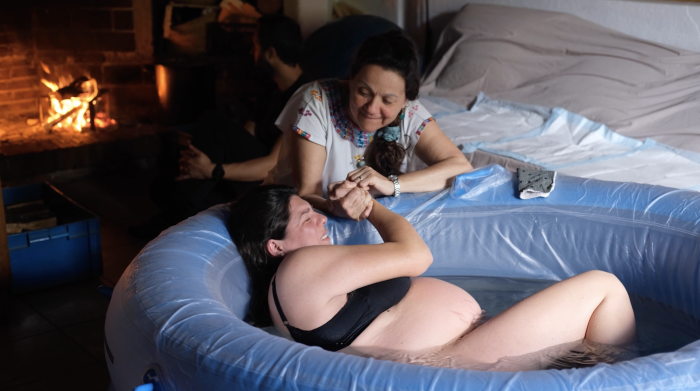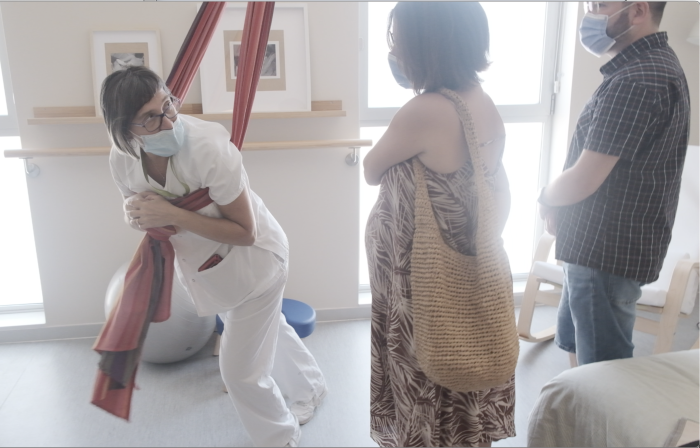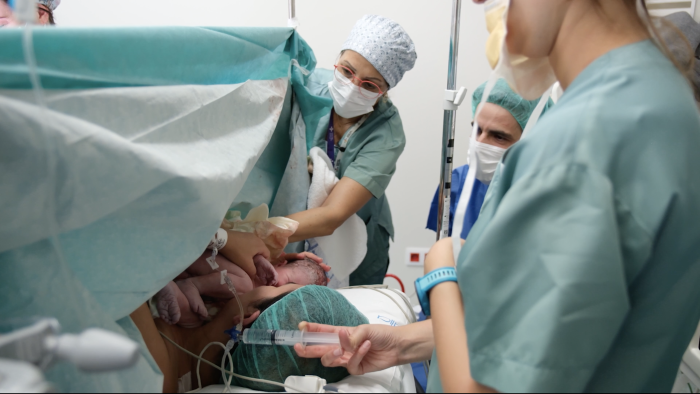'Mare meva' is a 100% independent and self-funded documentary that has been following the work of three midwives since 2021. The documentary shows shocking stories of how midwives attend births at home, in hospitals, and explains how midwives have transformed women's healthcare. Today, however, 40% of midwives in Catalonia are about to retire in 2026 and there is no replacement in sight. If nothing is done, we will soon run out of midwives. Mare Meva explains how a success story faces a key year for its future, and ours.
Mare Meva follows Inma Marcos, a midwife, and daughter of a midwife, a reference in her profession dedicated to home births; Dr. Lucía Alcaraz, who founded Casa Laietana, which within Can Ruti allows you to give birth as if you were at home and the only project in Catalonia led by midwives; and Maria Llavoré Fàbregas who works as a midwife at the Hospital de Sant Pau and specializes in working on the emotional and physical impacts surrounding women's reproductive phases.
Through them we will meet mothers, fathers and children who have been able to form families in a supported way.
Main features and goals of the crowdfunding campaign
Mare Meva is a self-funded documentary that intimately explores the lives of three midwives over four years, highlighting their intimate relationships with women and their unique contributions to maternal care in Catalonia. Unlike other projects, it addresses the urgent future challenge of the midwifery shortage and its implications for society.
With Mare Meva, my goal is to show the diverse and valuable roles that midwives play in women's lives and healthcare. The documentary aims to provoke meaningful dialogue about the urgent challenges they face, in particular the projected labor shortage by 2026, while drawing attention to the complex ways in which politics and women's health influence and shape each other.
The crowdfunding is aimed at hiring qualified staff. Editor, sound technician, colorist, post-production team, graphic designers, translators are needed. The money will be used to recover part of the initial investment, and give the final push to present and distribute the documentary. If up until now I have been able to do the work alone, and much of the filming is already finished, now a team is needed to make the documentary reach festivals, platforms or television.
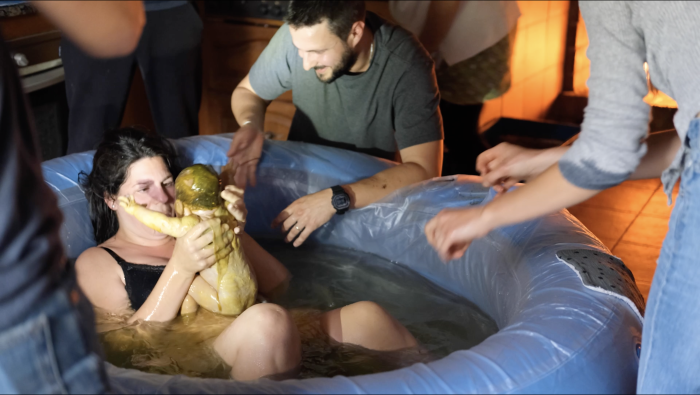
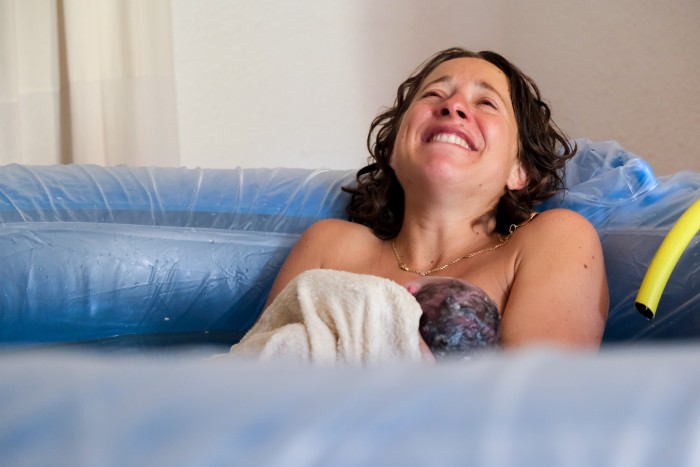
Why this is important
Four years ago, during the pandemic, I met Inma Marcos, a freelance midwife researching a series of photo essays I made for the newspaper Vilaweb, Parir en Pandèmia. She opened a window into one of the oldest professions. Through her, I was introduced to a network of women who have fought tirelessly to protect and support other women over time, throughout history, under dictatorship and into the modern era as part of the European Union.
Inma also revealed an impending crisis: by 2026, 40% of midwives in Catalonia will retire without replacement, leaving a significant gap in care. This stark reality became a lens through which I saw how history and politics shape our bodies and lives, tying them together over time. I couldn’t help but wonder: what will happen in 2026?
Four years later, the answer is here, looking at you and me. You may not be a woman or a mother, but close to you, there is a woman you love and want to keep safe.
Thus was born Mare Meva. This documentary follows three midwives, three of the incredible women I met in Catalonia, who have dedicated their lives to educating women about their bodies and their choices. Through their stories, I hope to shed light on the strength, resilience and importance of those who bring life into the world and protect it every step of the way.
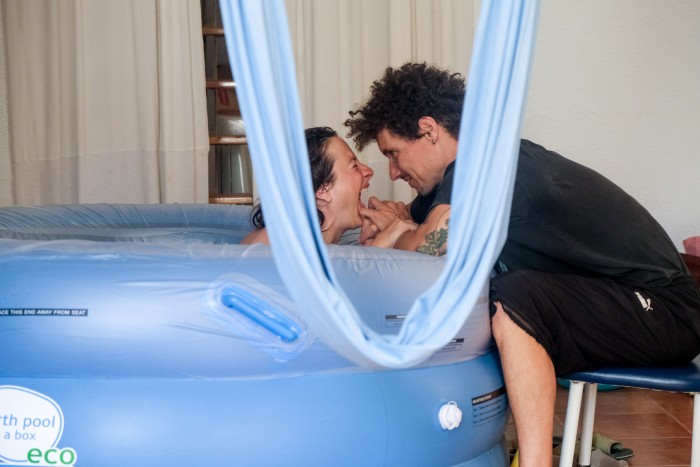
Team and experience

Adiva Koenigsberg (director and producer) is a photojournalist and educator with over 20 years of experience in the audiovisual world. From 2006 - 2014, she cultivated her craft working in camera and screenwriter roles for an Israeli experimental film production company, gaining experience in both the technical and creative aspects of filmmaking. In 2020, Adiva began her journey as a photojournalist, which for her has felt like finding home, a place to merge her love of portraiture and storytelling. The production of her first feature documentary, Mare Meva, began 4 years ago as a series of photo reports about women who gave birth during the pandemic. This deeply personal project is completely self-funded and seeks support to help polish it so that it can be shared with the public.
Hannah Reemers (b. Paris, 1999) is a photographer and videographer based in Barcelona, with a background in philosophy and law.
Since 2023, she has been part of the Mare Meva team, working as an assistant director and production assistant. In this role, she has contributed to part of the filming and communication of the project.

Inma Marcos (58) is a midwife with over 30 years of experience as a midwife and 25 dedicated exclusively to home birth care, having assisted over 800 births in the last 20 years. She is president of the Home Birth Midwives Association of Catalonia (ALPACC), an organization that promotes and supports home birth, defending the right of women to give birth where they feel safest and wish. She is also a teacher and trainer of midwives in emergencies and home births, collaborating with the Catalan Association of Midwives in training courses for professionals. Her mission is to help babies feel welcomed and loved from the very beginning, and for mothers to feel capable and strong during the birth process.

Maria Llavoré Fàbregas (53) is a midwife with extensive experience in caring for cases of perinatal death and grief. She consults on pelvic floor and sexuality and is part of different committees in scientific societies such as obstetric violence. She works at the Hospital de Sant Pau in Barcelona, where she has co-authored two new care guides in this area. She is an advocate for all the different emotional experiences around birth, women's bodies and the family experience around the life and death of babies.

Dr. Lucia Alcaraz (57) is the founder of the first fully public birthing center in Catalonia. A project that was launched in the middle of a pandemic and with many complications. In 2022 Lucia leaves her position at Casa Laietania to finish her doctorate, a fact that helps the cause of midwifery to help with the construction of material to teach and demonstrate how the profession of midwifery serves the world through studies and research that gives strength to the profession in an academic world.























